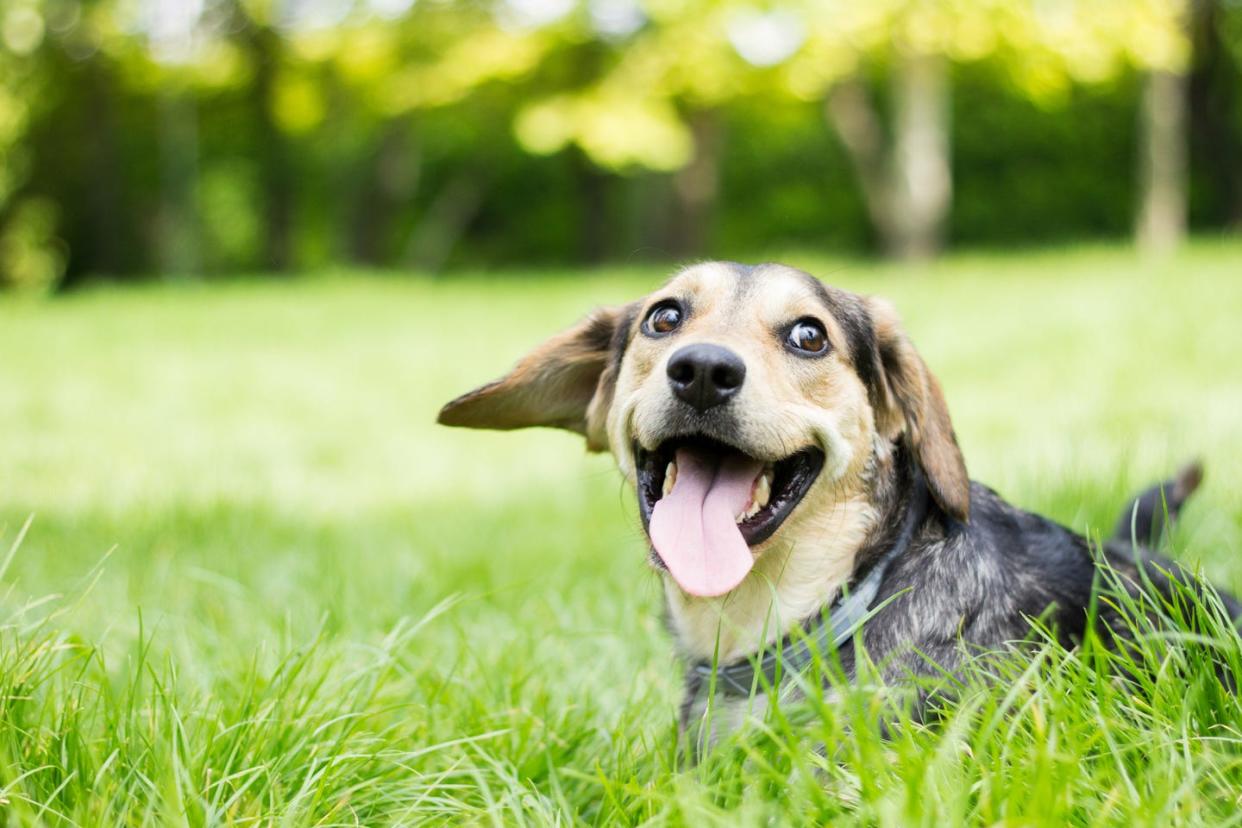Why Do Dogs Eat Grass, and When Should You Be Concerned?

"Hearst Magazines and Yahoo may earn commission or revenue on some items through these links."
We love our dogs for so many reasons: their boundless energy, loyal companionship, and the way they amuse us with their playful antics and quirky habits. One such habit that might leave you scratching your head, though, is when your dog eats grass. To get to the bottom of this behavior, we spoke with Dr. Jerry Klein, Chief Veterinarian at the American Kennel Club, who shed some light on why dogs eat grass and what it means for their health.
Why do dogs eat grass?
This behavior might seem odd, but it's more common than you might think. It could be your dog’s way of supplementing their diet with fiber or simply keeping themselves entertained.
"Dogs can eat grass for a variety of reasons including the taste, out of boredom, indigestion, and possibly for nutrition for the added fiber," says Klein.
Some other possible reasons include instinctual behavior inherited from their wild ancestors, seeking relief from an upset stomach, or even just exploring their environment out of curiosity.
Do dogs eat grass to make themselves vomit?
Some people believe that dogs eat grass to induce vomiting, especially when they're feeling unwell. According to Dr. Klein, "Eating grass is instinctually a way a dog feels they can act to alleviate a gastric disturbance. Some dogs do vomit soon after eating it and they sometimes feel better."
However, he notes that this isn’t always the case, citing a study that found only 22 percent of dogs vomited after eating grass. "The researcher concluded that grass and plant-eating is a normal behavior of domestic dogs," Dr. Klein adds. These findings suggest that grass-eating may be less about self-treatment and more about natural canine behavior.
Is it safe for dogs to eat grass?
The occasional grass snack might be harmless, but Dr. Klein warns, "Sometimes, even normal behaviors can be harmful if done excessively, or if the grass has been recently treated with herbicides and pesticides that are toxic to dogs."
The risk isn't just from chemicals—Dr. Klein points out that grass can harbor parasites like roundworms and hookworms, which can be ingested by your dog. In these cases, alerting your veterinarian is crucial, as they may need to test for parasites or toxins.
What should I do if my dog eats grass?
If your dog has suddenly developed a taste for grass, it’s important to keep an eye on this new behavior. "If you notice your dog eating grass more frequently or excessively, be alert for potential underlying illnesses that may be the cause," Dr. Klein says. Watch for symptoms like vomiting, diarrhea, or restlessness, and consult your veterinarian if you’re concerned.
How can I stop my dog from eating grass?
If your dog’s grass-eating habit becomes excessive, it's time to intervene. "If you can, try to prevent your dog from eating grass, especially if it’s not growing on your own property," Dr. Klein says. Training your dog to follow commands like “leave it” can be helpful, and keeping an eye on them when they’re outside is a good practice until they break the habit.
Dr. Klein also offers some practical tips to curb the behavior:
Feed your dog smaller, more frequent meals, especially first thing in the morning.
Consider different products or a deterrent spray that will show your dog what areas are off-limits.
Ask your veterinarian or a veterinarian nutritionist for food or digestive supplement recommendations that will best suit your dog’s age, breed, and activity level.
When you let your dog in the yard, play with them or give them a safe chew toy.
Always monitor your dog when they’re near houseplants, as some can be toxic if chewed or ingested. If you suspect your dog has consumed something harmful, contact your vet immediately. To keep your yard safe, consider planting a dog-friendly garden
without harmful chemicals or fertilizers.
By understanding the reasons behind this behavior and taking the right precautions, you can help ensure your dog (and your lawn!) stays happy and healthy.
You Might Also Like
